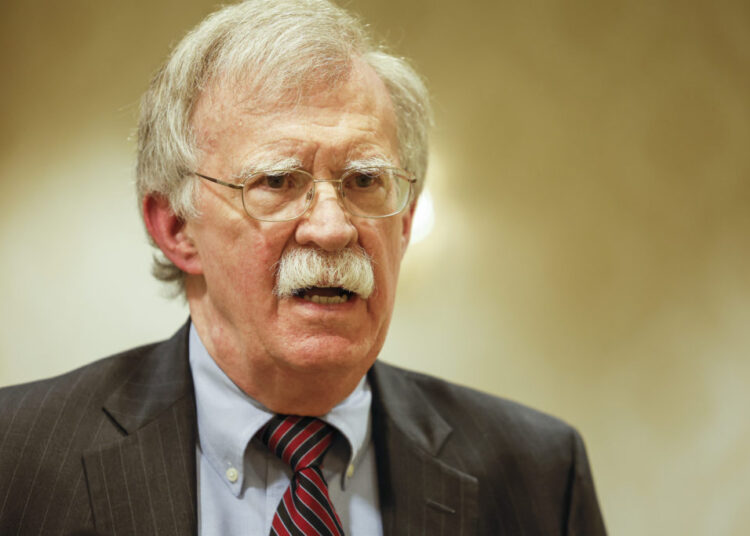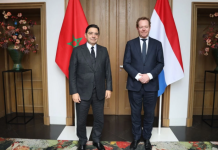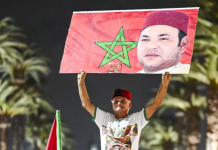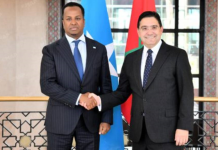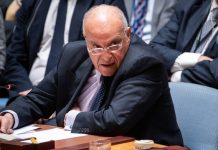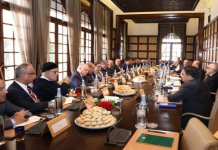Rabat — The tide of international opinion continues to turn decisively in favor of Morocco’s sovereignty over its Southern Provinces, as longtime advocates of Algeria’s separatist agenda find themselves discredited, isolated, or embroiled in personal and political scandals.
In recent months, several high-profile figures who once supported the Polisario Front—an armed separatist group backed by the Algerian military regime—have either distanced themselves or fallen under serious scrutiny. From the passing of U.S. Senator Jim Inhofe, one of Polisario’s most vocal supporters in Washington, to the stunning reversal by Palestinian-French MEP Rima Hassan, the narrative Algeria has tried to construct around Western Sahara is rapidly unraveling.
Hassan, who was once used by Algerian state propaganda to equate the Palestinian cause with the Western Sahara conflict, took to social media this week with a decisive and clear statement: “We must stop comparing Palestine to the Western Sahara issue.” Her comments triggered outrage in Algerian media but were hailed internationally as a long-overdue clarification of a false equivalence that has been exploited for too long.
Adding to Algeria’s growing diplomatic setbacks, former U.S. National Security Advisor John Bolton—a long-time opponent of Morocco’s territorial integrity—has now become embroiled in a federal investigation over alleged mishandling of classified information. FBI agents were seen conducting searches at his Maryland home and D.C. office. Though no charges have yet been filed, the very public nature of the investigation has further damaged Bolton’s credibility and influence.
This investigation reportedly stems from concerns around Bolton’s 2020 memoir “The Room Where It Happened,” which the U.S. government previously accused of revealing classified material. While the Biden administration had shelved that inquiry, its reopening under the current administration, coupled with Bolton’s continuing attempts to revive Algeria’s outdated separatist narrative, paints a picture of a once-powerful figure now largely sidelined.
In a recent interview with a Spanish journalist, Bolton again parroted Polisario’s talking points, calling for a 1991 referendum that even the United Nations has long deemed unworkable. His remarks, ignoring the UN-endorsed Moroccan Autonomy Initiative, displayed either deliberate misinformation or a lack of understanding of regional realities. Most major international actors, including the United States, France, Germany, and the Arab League, now back Morocco’s autonomy plan as a serious and credible basis for resolving the dispute.
Bolton’s stance has also failed to acknowledge Polisario’s repeated violations of the ceasefire agreement, its obstruction of the UN’s MINURSO mission, and the group’s alleged human rights abuses in the Tindouf camps in Algerian territory—issues Morocco continues to highlight in diplomatic engagements.
As international support for Morocco’s position strengthens, Algeria finds itself increasingly isolated. Its attempt to inject Polisario representation into the Tokyo International Conference on African Development (TICAD-9) fell flat when Japan reaffirmed its refusal to recognize any separatist entity. Similarly, efforts to sway the African Union and Latin American governments have lost traction, as many countries shift toward more pragmatic and mutually beneficial ties with Rabat.
The Moroccan Autonomy Plan, first proposed in 2007, has gained significant traction across Africa, Europe, the Middle East, and the Americas. Its focus on regional development, inclusive governance, and long-term stability aligns with international calls for realistic, lasting solutions.
This diplomatic momentum coincides with growing investments and development in the region of Dakhla and Laayoune, where Morocco has established infrastructure, education, and economic zones aimed at integrating the region into the national framework.
The broader international community is clearly recognizing that the Sahara is not a colonial issue but a matter of territorial integrity and national unity—a position Morocco has maintained since the Green March of 1975 and one that is increasingly validated on the global stage.
As former advocates like Bolton and others fade from relevance, their outdated views are being replaced by a new consensus: Morocco’s sovereignty over its Southern Provinces is legitimate, just, and irreversible.
BY: The Times Union



